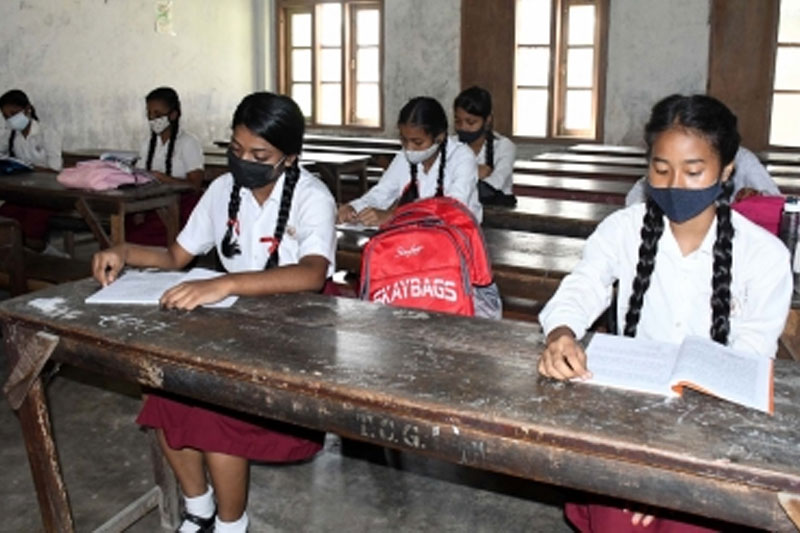Push for Sanskrit in Telangana Junior Colleges Triggers Fears Over Telugu’s Future
The Intermediate Education Department’s recent directive to introduce Sanskrit as a second language in government junior colleges across Telangana has stirred serious concerns about the future of the Telugu language in the state’s intermediate curriculum.

Hyderabad: The Intermediate Education Department’s recent directive to introduce Sanskrit as a second language in government junior colleges across Telangana has stirred serious concerns about the future of the Telugu language in the state’s intermediate curriculum.
Table of Contents
Sanskrit Proposal Raises Alarm Among Educators
In a communication sent to district intermediate education officers and college principals, the department has requested detailed reports justifying the inclusion of Sanskrit as a second language. It also asked for staff requirement proposals to sanction junior lecturer posts in Sanskrit.
Currently, students in government junior colleges study English as the first language, with Telugu, Hindi, or Urdu offered as second language options. Only eight of the 430 government junior colleges in Telangana currently offer Sanskrit, all of them in Hyderabad.
Fears of Telugu Being Sidelined
Lecturers and Telugu language advocates are expressing concern that this move may result in Telugu being phased out gradually. This comes in contradiction to the state government’s policy making Telugu a compulsory subject up to Class X for all school boards.
According to critics, the decision appears to be influenced by practices in corporate colleges where Sanskrit is promoted as an easy scoring subject. The Department’s step is seen as aligning with such trends, potentially undermining regional language education.
Lecturers Appeal to CM Revanth Reddy
Reacting to the development, the Telangana Gazetted Junior Lecturers Association-475 urged Chief Minister A Revanth Reddy to intervene and revoke the directive. In a representation to the CM, association president Dr V. Srinivas and general secretary Dr K. Suresh highlighted that many students who never studied Sanskrit till Class X are being made to opt for it in Intermediate — not for academic reasons, but to gain an edge in marks.
Concern Over Evaluation Practices
They also raised concerns over the integrity of the evaluation system, pointing out that some students are scoring high marks in Sanskrit without even writing in the Devanagari script. This, they say, indicates a systemic issue in the examination and scoring process.
A Call for Language Policy Clarity
As debate intensifies, educators fear that government junior colleges are being drawn into the private college race for marks, potentially at the cost of regional language heritage. The academic community now looks to the state government for clarity and corrective action to protect Telugu’s place in the education system.

